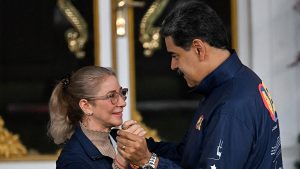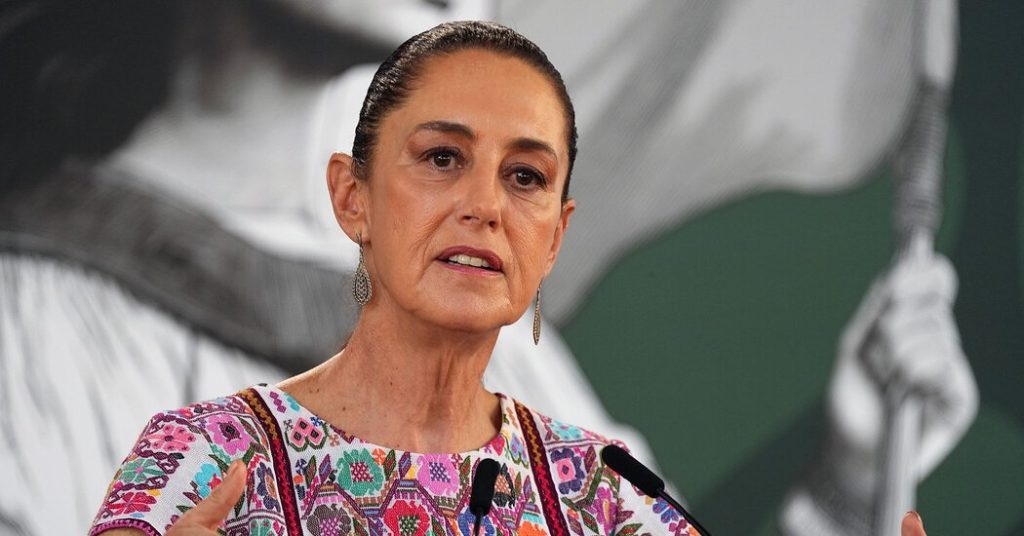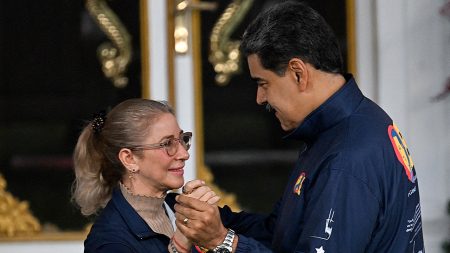The weeks leading up to Donald J. Trump’s inauguration as the U.S. president were anything but routine, especially for Latin America. Trump had built much of his campaign and rhetoric on a platform of tough immigration policies, including promises of mass deportations, a heavily militarized border, and punitive tariffs targeting countries like Mexico. It wasn’t just the policies themselves that set the tone; Trump’s broader narrative painted an antagonistic picture. From allegations that Mexico was funneling fentanyl into the U.S. to unfounded claims that China controlled the Panama Canal, Trump’s words stirred both anxiety and defiance across the Latin American leadership landscape.
As Trump took the oath of office and began implementing his agenda—complete with a flurry of executive orders signed on his first day—leaders from Mexico, Honduras, El Salvador, Panama, and other countries in the region began calibrating their responses. The inauguration stood as the fulcrum of a charged narrative between the U.S. and its southern neighbors, alternating between defiance, hope for dialogue, and cautious pragmatism. Here’s how it unfolded.
### Mexico’s Defiance and Reassurance
Mexico, given its unique geographical and economic ties to the U.S., was firmly in Trump’s crosshairs. Trump’s campaign rhetoric often painted Mexico as a source of crime and drugs entering the United States, and his pledge to levy crippling 25% tariffs further escalated tensions.
Amid this, Mexico’s leadership attempted to find its balance between rebuking Trump’s stance and assuring its citizens. President Claudia Sheinbaum, during a morning news conference, stressed Mexico’s independence and strength: “There is no reason why Mexico should keep its head down or feel lesser than. We are a great country, a cultural power. Our relationship with the United States will be one of equals.”
But more than just political posturing, Sheinbaum addressed the emotional concerns of unauthorized Mexican immigrants living in the United States. Out of the nearly 11 million undocumented immigrants in the country, Mexicans make up around four million. “To our countrymen and women: You are not alone, and you must remain calm,” she assured.
Her remarks were echoed by Mexico’s foreign minister, Juan Ramón de la Fuente, who stated Mexico’s refusal to support a reinstatement of the “Remain in Mexico” policy. During Trump’s first term, this policy forced asylum seekers to wait in Mexico for their U.S. immigration hearings, a practice that placed vulnerable migrants at the mercy of drug cartels and human traffickers. De la Fuente made it clear that while the United States had the sovereign right to implement such a policy, Mexico had no legal obligation to comply or facilitate it.
But behind the scenes, the Mexican government also prepared for a more direct response to Trump’s 25% tariff threats, with officials mulling retaliatory measures. Meanwhile, Sheinbaum, in a careful diplomatic pivot, congratulated Trump on his inauguration, writing that “dialogue, respect and cooperation will always be the symbol of our relationship.”
### Honduras Draws a Line
Honduras, another key player affected by Trump’s immigration and deportation rhetoric, showcased more overt resistance. Its president, Xiomara Castro, had previously warned she might expel the U.S. military from the country if Trump pursued mass deportations. Her deputy foreign minister, Tony García, vocalized the region’s collective sentiment during a phone interview: “They can’t be done unilaterally,” García said about mass deportation flights. He emphasized that Honduras would negotiate terms before allowing large numbers of deportees to return, highlighting the importance of coordination over subordination.
The stakes were high; Honduras has received over half a million deportees from the U.S. in the last decade, making clear that the potential fallout from Trump’s policies was deeply personal for the country and its economy. While García’s tone reflected a firm stance, the broader context included ongoing discussions among regional foreign ministers in Mexico City, covering collective strategies to resist unilateral deportation measures.
### Panama Pushes Back on Canal Claims
Panama found itself in Trump’s spotlight after repeated, erroneous claims that China had seized control of the Panama Canal—a statement Trump even doubled down on during his inaugural address by suggesting the U.S. should intervene to reclaim it. Panama’s President José Raúl Mulino strongly refuted these assertions, stating unequivocally, “The Canal is and will continue to belong to Panama and its administration will continue to be under Panamanian control.”
Yet Trump’s remarks stirred enough controversy that Panama’s comptroller’s office began auditing Panama Ports Company, tied to a Hong Kong conglomerate. While the audit’s true intent remains unclear, it marked an unusual intersection of Panama’s internal affairs and Trump’s fiery rhetoric.
### El Salvador’s Quiet Calculations
El Salvador, led by President Nayib Bukele, seemed to take a more cautious approach. Represented at Trump’s inauguration by its ambassador rather than Bukele himself, the country avoided overt confrontation. While Bukele’s administration did not outright oppose Trump’s immigration directives, it emphasized its ties to U.S. allies like Marco Rubio, now Trump’s secretary of state, and maintained connections with Trump’s family.
Salvadoran Foreign Ministry official Cindy Portal urged patience among the Salvadoran diaspora in America, the fourth-largest group of unauthorized immigrants in the United States. She pointed out that only those who had committed crimes would be prioritized for deportation.
### Latin America’s United Front
Elsewhere, other nations in Latin America adopted varying degrees of caution and resistance. A coalition of countries, including Guatemala, Haiti, and Venezuela, considered coordinated opposition to mass deportations. “If a country says no one can come in, not one plane can touch down,” said Tony García, summarizing the region’s sentiment. In Venezuela, where U.S. sanctions were already a challenge, Interior Minister Remigio Ceballos sent Trump well-wishes but avoided direct criticism.
Conversely, Cuba was far less diplomatic. President Miguel Díaz-Canel pointed out the devastating impact of U.S. sanctions imposed during Trump’s previous administration, calling them part of a strategy that has caused shortages and spurred migration flows to the United States.
### Fading Hope Among Allies
Even U.S. allies like Canada saw themselves potentially at odds with Trump. Canadian Finance Minister Dominic LeBlanc expressed readiness to respond to Trump’s tariff threats but pointed out that such measures would damage trade relationships.
The regional response to Trump’s inauguration painted a mosaic of cautious optimism, outright defiance, and careful diplomacy. While some leaders rebuffed Trump’s claims, others signaled willingness to engage—though always on their own terms. Trump’s aggressive policies served as a unifying factor for much of Latin America, as countries aligned themselves to resist the unilateral imposition of U.S. measures. Whether through quiet negotiations or public rebukes, Latin American leaders made one thing clear as Trump embarked on his presidency: sovereignty and dignity would frame their responses moving forward.
No doubt, the collisions between Trump’s hardline stances and the region’s mixed strategies will set the stage for one of the most contentious periods in U.S.-Latin America relations in recent history. The road ahead promises political maneuvers and human implications to unfold in equal measure.











